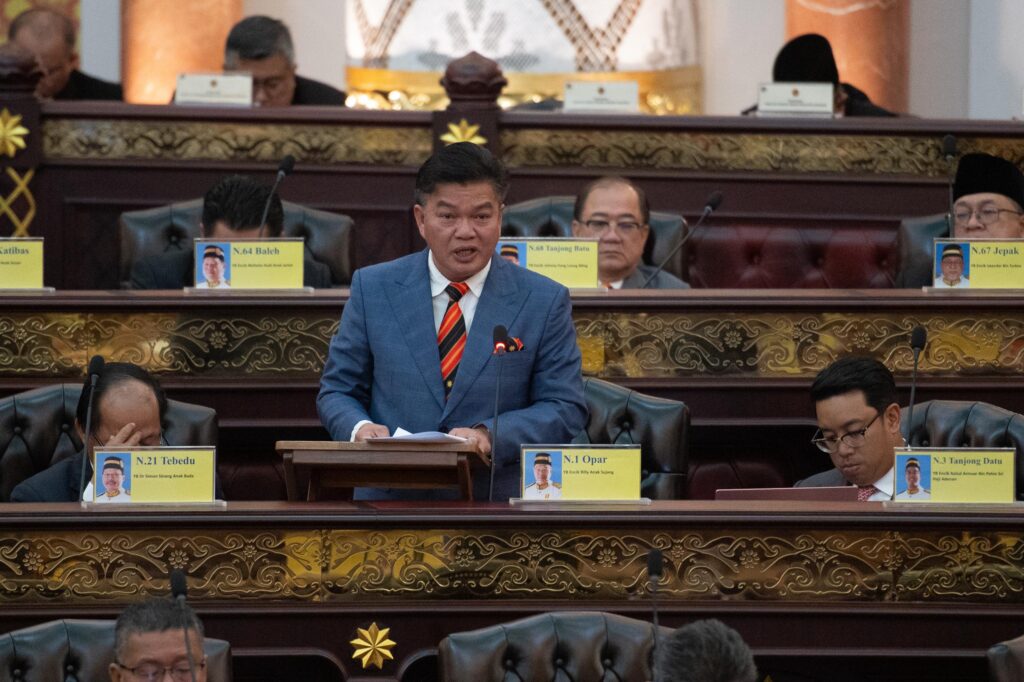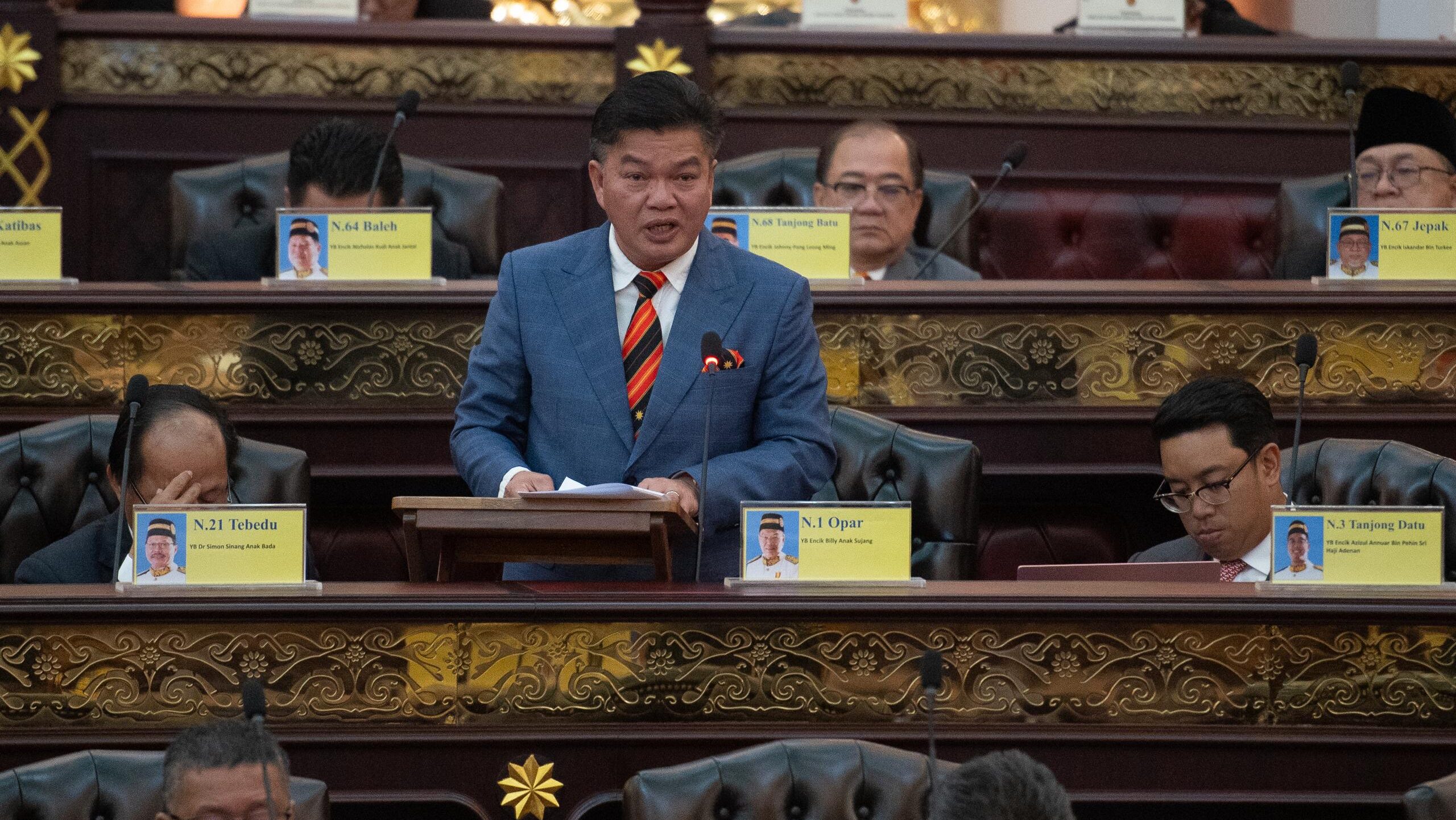KUCHING — The Sarawak State Legislative Assembly is poised for major change as it considers a proposal to expand its number of elected representatives from 82 to 99 seats. The State Legislative Assembly (Membership Composition) Bill 2025 was tabled during a special sitting, aiming to reflect population growth, improve representation, and ensure balanced development across the state.

Among the most vocal supporters of the move is YB Billy Sujang, ADUN for N.01 Opar, who passionately advocated for the bill, calling it a bold and necessary step in the state’s democratic and development journey.
A Timely Response to Voter Growth
YB Billy Sujang emphasized the sharp rise in Sarawak’s voter base, especially following the Undi18 reform that automatically registers voters aged 18 and above. Urban constituencies like Kuching, Miri, and Bintulu now face voter populations more than double those in rural areas.
“This imbalance threatens the principle of one person, one vote,” he warned. “We must adjust now to protect fairness in our democracy.”
By increasing the number of seats, the state can even out the distribution of voters, reduce strain on current representatives, and ensure every Sarawakian has an equal say in the state’s future.
Ensuring Fair Voice for Every Community
Sarawak’s geographical vastness and ethnic diversity present a unique challenge in governance. Some current constituencies stretch across hundreds of kilometres, making it nearly impossible for ADUNs to engage regularly with all communities under their care.
YB Billy Sujang noted, “This proposal is not about politics—it’s about bringing government closer to the people.” The addition of 17 seats would enable more focused representation, especially in rural and interior regions, where many communities still face challenges in accessing services and leadership.
Supporting Development under PCDS 2030
Sarawak’s ongoing transformation under the Post-COVID Development Strategy (PCDS 2030) is ushering in new infrastructure, digital initiatives, and industry growth. As populations shift and urbanize, and development spreads into new corridors, YB Billy stressed that ADUN roles have evolved.
“Today’s elected representative must engage with agencies, lead local development, and reflect the people’s aspirations at every level,” he said. “Adding new seats will improve responsiveness, local coordination, and ensure projects benefit everyone—not just urban areas.”
A Commitment to Democratic Integrity
Expanding the Assembly is seen as a proactive move to maintain democratic credibility. Rather than reacting to imbalances in future elections, the state is seeking to align its legislative structure with population realities now.
YB Billy reiterated that the proposal honours both democratic growth and tradition, ensuring that Sarawakians from all backgrounds—urban and rural, coastal and inland—are not only heard but fairly represented.





